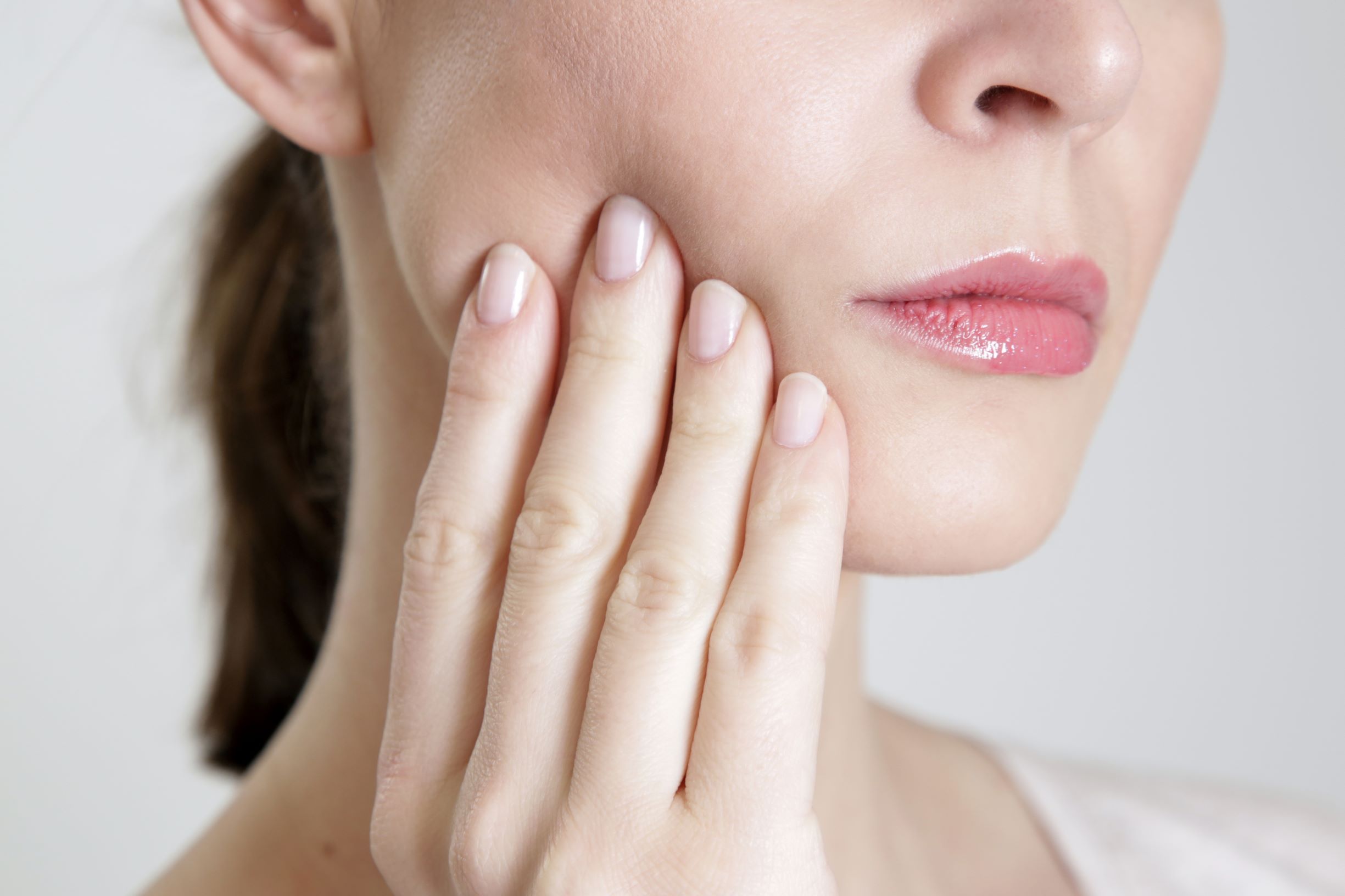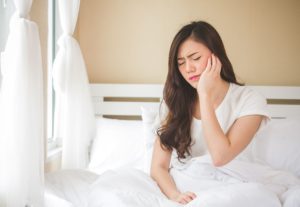
Do you wake up with a tight jaw, sore face, or dull headache? If so, you may be grinding your teeth while you sleep. Teeth grinding or clenching, also known as bruxism, is a relatively common condition. It usually occurs at night while you’re asleep but can also happen while you’re awake as you unconsciously clench your jaw. If left untreated, teeth grinding can cause serious damage to your teeth.
Causes of Bruxism
There are several reasons why you could be grinding your teeth, but the following causes are the most common.
- Misaligned Teeth Problems: Teeth that are misaligned, also referred to as occlusion, do not properly meet when the jaw opens and closes. This could simply be because of how your adult teeth settled in your mouth or could be a result of joint or muscle issues around the jaw.
- Anxiety or Stress: If you have a tendency to worry excessively, especially at night, you may be more inclined to clench or grind your jaw while you sleep. Our problems can affect us at any time, and nighttime is no exception. It is important to deal with the stress in your life in a healthy way. Taking time to relax before bed will decrease your chance of teeth grinding when you finally lay down for the night.
- Medical Causes: Certain antidepressants can cause you to unknowingly grind your teeth at night. Some diseases, such as Parkinson’s disease or sleep apnea, can also cause bruxism.
Problems Caused by Teeth Grinding
Symptoms of bruxism vary depending on how severe the grinding or clenching is. As stated earlier, a tight jaw, sore face, or headaches are common symptoms of teeth grinding that you will notice while you’re waking up. The effects grinding has on the actual teeth can include tooth sensitivity, cracked or broken teeth, and temporomandibular joint syndrome (TMJ).
How to Treat Teeth Grinding
 Night Guards: Wearing a night guard is the most common and effective way to treat teeth grinding and clenching. Your dentist can create a custom night guard, usually made of plastic or acrylic, for you to wear on your top teeth. It does not stop you from physically grinding your teeth, but it does protect your teeth from any potential damage.
Night Guards: Wearing a night guard is the most common and effective way to treat teeth grinding and clenching. Your dentist can create a custom night guard, usually made of plastic or acrylic, for you to wear on your top teeth. It does not stop you from physically grinding your teeth, but it does protect your teeth from any potential damage.- Relax: If you think stress may be the source of your teeth grinding, learning ways to combat that stress can significantly help. Meditation, taking a warm bath, or listening to relaxing music can help calm you down before bedtime.
- Be Self-Aware: If jaw clenching during the day is your main problem, it is important to notice when you are doing it. Be aware of your mouth and jaw position. Keep your lips together but allow your jaw to drop into a comfortable position.
- Massage Your Jaw: This is especially helpful for those who suffer from TMJ. Your jaw is a muscle just like all the other muscles in your body. Massaging your jaw, especially right after waking up, can help loosen the muscle and eliminate any pain you may feel.
- Avoid Chewy Foods: Foods that require a good amount of chewing can cause more oral damage on top of already grinding your teeth. Steak and chewing gum are two of the most common kinds of chewy food. Additionally, do not chew or gnaw on pencils or other hard items. Many people do this unconsciously when they’re thinking, but this only causes more clenching in the jaw.
To get help for your teeth grinding or clenching, please contact us at Fisher Pointe Dental.

